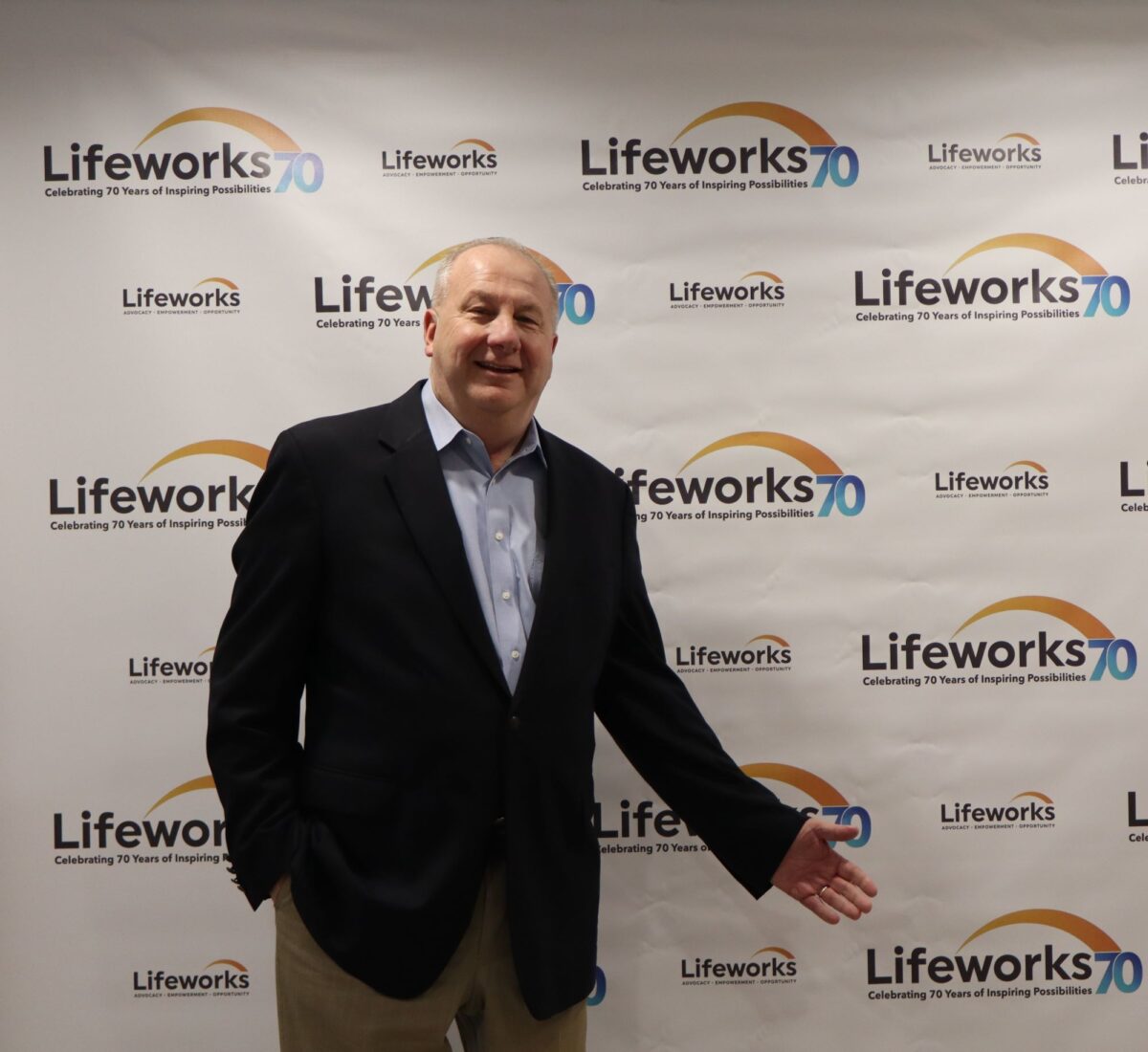
Advocacy – The Lifeblood of The Arc and our System of Supports for over 70 years.
In 1954, when our local chapter of The Arc was formed at Ruth Holman’s kitchen table in Walpole, the reason they gathered, and their mission was clear: to improve the lives of children with intellectual and developmental disabilities. Back then, options were limited to either relocating to a state institution or staying at home with minimal support. This “kitchen table” meeting aimed to establish our own support network, camaraderie, and our own community of care.
This motivation led The Arc, on a national, statewide, and local basis, to become the world’s largest civil and human rights organization for individuals with disabilities. Through grassroots advocacy efforts, volunteer chapters evolved into legal entities, attracting dedicated staff, and advocating for legislative and judicial reforms in the 1970s. At that time, Lifeworks then known as The Arc of South Norfolk, played a pivotal role alongside other chapters in advocating for Chapter 766. This landmark legislation ensured equal and least restrictive education for individuals starting at age 3 in public schools. And further, a lawsuit known as the Ricci lawsuit which closed the front door of institutions and led to the establishment of community-based programs including residential homes, day programs, and other supports.
Over the ensuing decades, advocacy took various forms, from— impactful lawsuits like the Boulet lawsuit for families on waiting lists, the Rogers lawsuit to get people misplaced into nursing homes into community living options, and the Hutchinson lawsuit on behalf of people with acquired brain injury—to ongoing efforts to influence state budgets and legislation. Annual outreach and education initiatives aimed at legislators have been instrumental in securing legal rights and adequate funding for services, such as those outlined in Chapter 257, which established a rate-setting process under the Executive Office of Health and Human Services.
However, sustaining these achievements requires continuous advocacy, particularly concerning the state budget and legislative initiatives. Each year, we engage the individuals we serve, their families, and our staff in advocacy events at the State House, including the ADDP annual legislative forum in February, the Arc of Massachusetts statewide advocacy day in March, and the AFAM Action day in April.
Most importantly this year, amidst ongoing challenges like service disruptions, economic strains, and workforce shortages that have impacted so many businesses, our focus remains on supporting our dedicated staff. Workforce challenges are an essential issue for Lifeworks. As we witness the return of personnel, it’s imperative that we be able to hire the best staff possible, and provide them with competitive salaries, benefits, and ample support to view their roles as long-term careers.
We need your help. Attached is a link to our legislative agenda. We urge everyone to join us in advocating for the Governor’s budget proposal, particularly the funding of the Human Services Salary Rate Reserve, which directly impacts salaries in programs funded by the Department of Developmental Services. This allocation, amounting to $397 million, aims to ensure that staff salaries reach at least $20 per hour for entry-level staff, acknowledging the vital role they play in delivering essential services.
While the budget amount may seem large, it is for the most staff intensive, largest budget line item, supporting persons with intellectual and developmental services in the state. Amidst the gradual resumption of day services, residential programs have emerged as a crucial lifeline for numerous individuals. Additionally, these programs have faced the most significant staffing challenges. Considering the high cost of living, even with a wage of $20 per hour, many of our staff find themselves compelled to take on second jobs or work extensive overtime with Lifeworks to ensure the success of our services.
Our representatives and senators need to hear from all stakeholders—the individuals we serve, their families, and our staff—about the invaluable work being done and the transformative impact of adequate support. Together, we can make a difference.
As we celebrate our 70th year, Lifeworks continues to expand its reach. We serve 675 individuals daily and touch the lives of over 2400 individuals and their families annually. Our growth is testament to the dedication of our staff and the unwavering support of our community. From one residence in Sharon and a day program in Norwood in 1975 to today, with 19, soon to be 20, residences and three day program locations. These locations host employment, community-based day services, and day habilitation programs. Additionally, we have a community services division serving an array of programs for children, teens, and adults, as well as providing support for families and our local communities. However, all of this depends on outstanding staff as well as strong advocacy from our families and the individuals we serve.
We are asking you to contact your state representative and ask that they support Governor Healey’s budget for the Department of Disability Services (DDS).
Together, we can make a difference.